

About Event
BACKGROUND AND PURPOSE
The International Conference on Water and Flood Management (ICWFM) has been held biennially since 2007 by the Institute of Water and Flood Management (IWFM) of Bangladesh University of Engineering and Technology (BUET), and ICWFM-2025 is the tenth event. Water management in general, and flood management in particular, is an interdisciplinary field that requires integrated knowledge from diverse fields such as hydrology, hydraulics, morphology, atmospheric science, climate, environmental pollution, ecosystem, agriculture, disaster, vulnerability, risk, gender, livelihood, and poverty. As physical and socioeconomic risks continue to change and environmental degradation becomes increasingly apparent because of climate change and anthropogenic interventions, integrated approaches to analyzing these processes and their interactions are increasingly gaining traction in order to develop and implement comprehensive and sustainable strategies to mitigate and adapt to the impacts.
This conference aims to serve as a common platform for delving into the aforementioned issues through a holistic lens. The central theme of ICWFM-2025 is set as “Water and Ecosystem Conservation for Climate Resilience”. As echoed in international efforts, such as the UN Decade on Ecosystem Restoration, conserving and restoring water and ecosystems, as a holistic approach, have crucial roles in combating climate change, reversing environmental degradation, enhancing biodiversity, and fostering resilience. Afforestation and reforestation (including mangroves), restoring wetlands and river-floodplain connectivity, and sustainable agricultural practices provide multiple ecosystem services and synergistic benefits, including carbon sequestration, rejuvenation of fisheries and other ecosystems, buffering flood and storm surge impacts, and reducing saline intrusion and coastal erosion. Besides, there are many other ecological, cultural and socio-economic benefits that contribute to enhanced livelihood and human wellbeing, such as the provision of food, energy and clean water, support to livelihoods and biodiversity, and sites of spiritual and cultural importance. It is now high time we took a closer look at how we can integrate conservation and restoration of water and ecosystems into appropriate management measures and thus enhance climate resilience.
Key Information
Downloads
Themes
- Vulnerability and resilience in relation to water-related hazards
- Integrated approaches to hazard and risk management
- Disaster risk assessment and decision support systems
- Nature-based solutions in disaster risk management
- Impact-based forecasting and anticipatory actions
- Artifiicial intelligence (AI) and machine learning (ML) to improve disaster preparedness and resilience
- Web-based information systems for productivity and resource management
- Observed variability and Trends in Extreme Climate Events
- Climate change impacts on hydrology and water resources
- Harmonizing autonomous and planned risk reduction and adaptation strategies
- Transformative adaptation and climate resilient development
- River dynamics and restoration
- Hydro-morphology and coastal erosion: measurements, simulation and management
- Riverine, coastal and estuarine processes
- Coastal and estuarine water quality and nutrient loads: implications for ecosystem
- Riverine and coastal hazards: erosion, sedimentation, salinization, storm surge,
and fluvio-tidal flooding - Nature-based solutions for coastal protection
- Systems approach in managing coastal river-floodplain systems
- Adaptive delta management
- Coastal delta interventions, synergies and trade-offs
- Landscape modification and flow regime changes
- Sustainable environment and infrastructure development
- Climate-resilient infrastructure
- Challenges and constraints in asset management and infrastructure maintenance
- Shore protection, port structure and navigation
- Integrating grey, green and blue infrastructure
- Blue economy
- Restoration and rehabilitation of watercourses, wetlands, river-floodplain connectivity
- Water security risks
- Water conservation, water use efficiency and productivity
- Management of surface water and groundwater
- Agricultural water management
- Climate resilient agriculture and enhancing food production
- Salinity resilience and sustainable crop production
- Sustainable fisheries and water management
- Water, Sanitation and Hygiene
- Water entrepreneurship
- Gender in water management practices
- Participatory and adaptive approaches to water management
- Sustainable livelihoods and livelihood security
- Integrated assessment of social-ecological systems for sustainable livelihoods
- Water restoration and sustainable use
- Water pollution and ecosystem degradation
- Water environment protection and management of aquatic habitats
- Functions and values of delta/ coastal ecosystems and their trends
- Sustainable use of floodplain and coastal resources
- Wetlands restoration and biodiversity
- Co-benefits of conservation and restoration of water and ecosystem
- Water-Energy-Food (WEF) Nexus for sustainable development
- Ecosystem services, livelihood, and human well-being
- Mainstreaming Climate Change Adaptation (CCA), Sustainable Development
Goals (SDGs) and Disaster Risk Reduction (DRR) in development planning - Joint achievements of SDG, DRR and CCA goals and targets
- Multi-sectoral and multi-objective water resources/ delta planning
- Prioritizing water investments and interventions
- Integrated project/ intervention appraisal framework
- SDG synergies and trade-offs
- Joint achievements of SDG, DRR and CCA goals and targets
- Transboundary water conflicts and opportunities for cooperation in common/ mutual interests
- Institutional integration for transboundary water management
- Basin wide management of transboundary rivers
Committee
Chair:
Prof. G M Tarekul Islam, IWFM, BUET
Organizing Secretary:
Dr. Shammi Haque, IWFM, BUET
Assistant Organizing Secretary:
Ms. Fariha Islam Mou, IWFM, BUET
Ms. Zarin Tasnim, IWFM, BUET
Ms. Nusaiba Nueri Nasir, IWFM, BUET
Ms. Mushrufa Mushreen Winey, IWFM, BUET
Mr. Md. Noor Tushar, IWFM, BUET
Mr. Rezaul Islam, IWFM, BUET
Members:
Prof. A.K.M. Saiful Islam, IWFM, BUET
Dr. Ahmed Ishtiaque Amin Chowdhury, IWFM, BUET
Prof. Anisul Haque, IWFM, BUET
Dr. Debanjali Saha, IWFM, BUET
Prof. Ishrat Islam, URP, BUET
Dr. K. M. Ahtesham Hossain, WRE, BUET
Prof. M. Shahjahan Mondal, IWFM, BUET
Prof. Mashfiqus Salehin, IWFM, BUET
Mr. Md. Abdul Khaleque, LGED
Dr. Md. Aminul Haque, WARPO
Mr. Md. Amirul Islam, IWM
Prof. Md. Mafizur Rahman, CE, BUET
Mr. Md. Motaleb Hossain Sarker, CEGIS
Prof. Md. Munsur Rahman, IWFM, BUET
Dr. Md. Sazzad Hossain, BWDB
Mr. Md. Washim Ali, BBA
Prof. Mohammad Asad Hussain, IWFM, BUET
Prof. Mohammed Abed Hossain, IWFM, BUET
Dr. Moniruzzaman Khan Eusufzai, RRI
Dr. Muhammad Abul Kamal Mallik, BMD
Ms. Nazmun Naher Mita, BWP
Dr. Partho Das, IWFM, BUET
Prof. Rowshan Mamtaz, ITN, BUET
Prof. Sara Nowreen, IWFM, BUET
Dr. Shampa, IWFM, BUET
Dr. Sonia Binte Murshed, IWFM, BUET
Ms. Swapna Begum, RHD
Prof. Tanvir Manzur, JIDPUS, BUET
Ms. Tasnima Nyme, Dhaka WASA
Chair
Prof. Mashfiqus Salehin, IWFM, BUET
Members
Prof. Kazi Matin Uddin Ahmed, Department of Geology, DU
Prof. Tanvir Ahmed, ITN, BUET
Prof. Md. Mostafa Ali, WRE, BUET
Prof. Muhammad Ashraf Ali, CE, BUET
Prof. A.F.M. Saiful Amin, CE, BUET
Prof. Mehedi Ahmed Ansary, CE, BUET
Dr. Partho Das, IWFM, BUET
Dr. Animesh Kumar Gain, Murdoch University, Australia
Dr. Md. Sazzad Hossain, BWDB
Prof. Mohammed Abed Hossain, IWFM, BUET
Dr. AFM Tariqul Islam, BARC
Prof. A.K.M. Saiful Islam, IWFM, BUET
Dr. Sonia Binte Murshed, IWFM, BUET
Prof. Sara Nowreen, IWFM, BUET
Dr. Indrajit Pal, DPMM, AIT, Thailand
Dr. Sheikh Mokhlesur Rahman, CE, BUET
Dr. Md. Shibly Sadik, Embassy of the Kingdom of the Netherlands in Bangladesh
Dr. Shampa, IWFM, BUET
Dr. Anwar Zahid, BWDB
Chair
Prof. Dr. Abu Borhan Mohammad Badruzzaman
Honorable Vice-Chancellor, BUET
Vice-Chair
Prof. Dr. Abdul Hasib Chowdhury
Honorable Pro-Vice-Chancellor, BUET
Members
Prof. Sujit Kumar Bala, Former Chairman, Dhaka WASA, Bangladesh
Dr. Biswa Bhattacharya, IHE Delft Institute for Water Education, The Netherlands
Prof. Hiroshi Cho, Kumamoto University, Japan
Prof. Jasim Imran, University of South Carolina, USA
Prof. Brema Jayanarayanan, Karunya Institute of Technology and Sciences, India
Prof. Jagath Kaluarachchi, Utah State University, USA
Prof. M. A. Karim, Kennesaw State University, USA
Prof. Kenji Kawaike, Kyoto University, Japan
Mr. Malik Fida A Khan, CEGIS, Bangladesh
Prof. Andy Large, New Castle University, UK
Prof. Abdullah Al-Mamun, International Islamic University, Malaysia
Prof. Ainun Nishat, BRAC University, Bangladesh
Dr. Vo Le Phu, Ho Chi Minh City University of Technology, Vietnam
Mr. S.M. Mahbubur Rahman, IWM, Bangladesh
Prof. Abul Fazal M. Saleh, Military Institute of Science and Technology (MIST), Bangladesh
Prof. Rajib Shaw, Keio University, Japan
Ms. Catharien Terwisscha van Scheltinga, Wageningen University & Research,
The Netherlands
Prof. Qiuhong Tang, Chinese Academy of Sciences (CAS), China
Abstract submission and publication
Extended abstracts within 2 pages (Maximum 800 words excluding references) on the conference topics are invited from interested authors. The extended abstract template can be found in the downloads tab. An individual can be the lead author of a maximum of two papers. A maximum of two papers can be submitted from an author portal. Pre-conference proceedings will be published based on the accepted abstracts of the registered authors. Selected papers from the conference will be published as book chapters by Springer Nature.
Fees & Payment
-
Authors & Participants (NON SAARC countries) 400 $
-
Authors and Participants (Non-SAARC Countries-Students) 200 $
-
Authors and Participants (SAARC Countries) 200 $
-
Local Authors & Participants 3500 BDT
-
Local Authors & Participants (Students) 1500 BDT
*Bangladeshi citizens having full-time affiliations (as students/employees) abroad will not qualify as local participants.
Method of Registration & Payment
Authors of accepted abstracts and interested participants will be able to do registration and make payment using the online platform hosted at ICWFM-2025 website. Registered authors and participants will be notified through email. Besides, authors and participants can make payments via direct bank transfer. Please contact Conference Secretariat for details.
Conference Secretariat
ICWFM-2025
Institute of Water and Flood Management (IWFM),
Bangladesh University of Engineering and Technology (BUET),
Dhaka-1000, Bangladesh
E-mail: icwfm@iwfm.buet.ac.bd
Phone: 02223365601
Our Sponsors
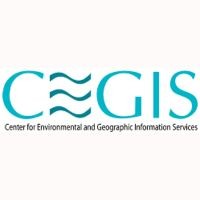
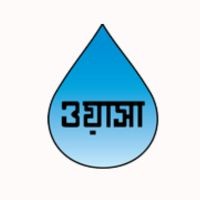
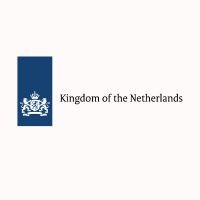
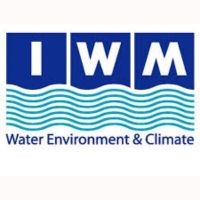
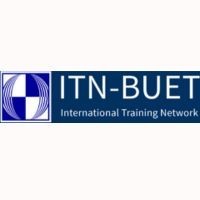
In Partnership With
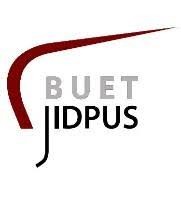

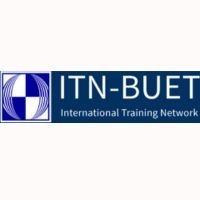
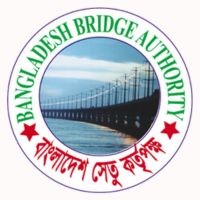
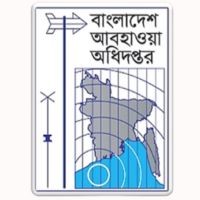
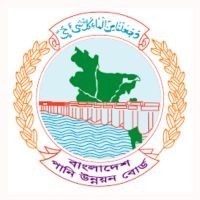
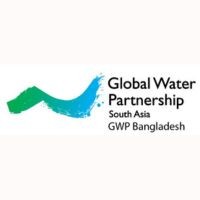
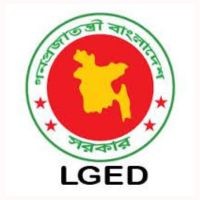
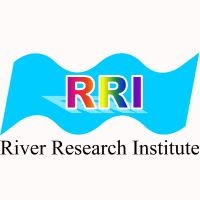

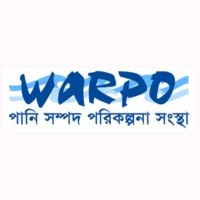
Contact us
Institute of Water and Flood Management (IWFM),
Bangladesh University of Engineering and Technology (BUET),
Dhaka 1000, Bangladesh
Telephone: +88 02 966 5601, PABX: +88 02 966 56650, EXT. 7506 Fax: +88 02 8661 3046
Available on Saturday to Wednesday (9 am to 5 pm)